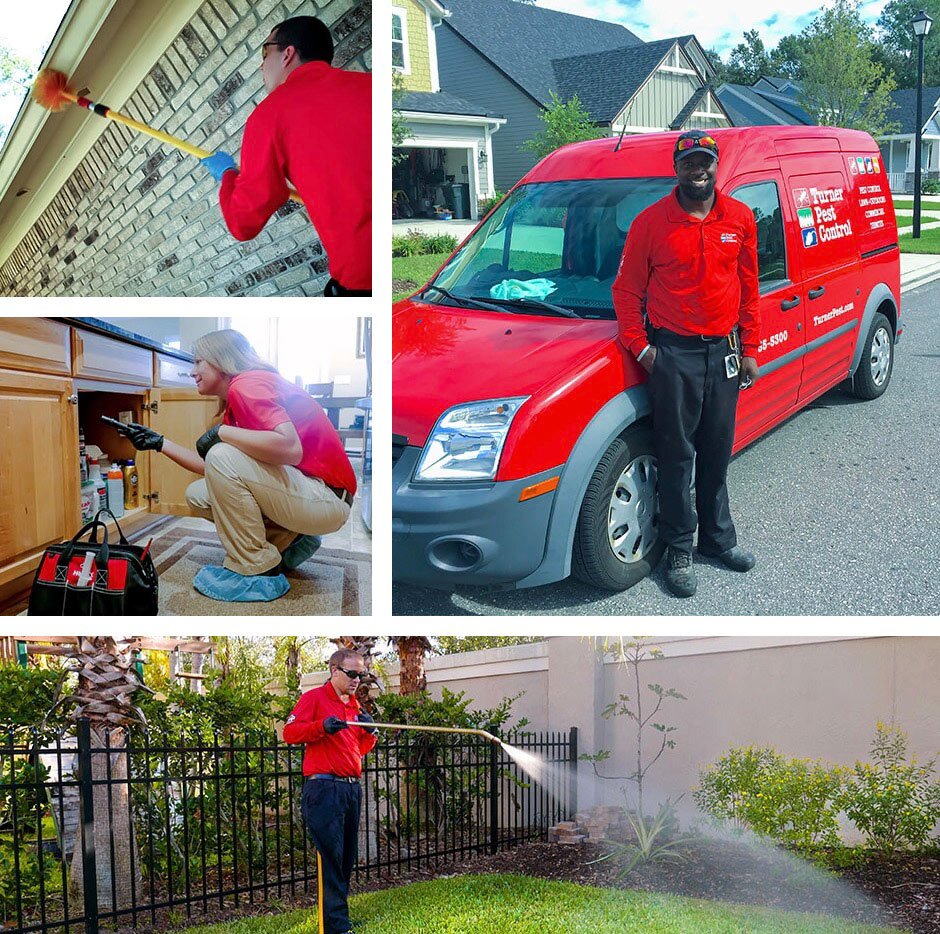Pest Control Auckland: Relied On and Efficient Solutions for each Pest Problem
Wiki Article
Understanding Various Kinds of Parasite Control Approaches and Their Performance
When taking into consideration parasite control methods, it is essential to recognize the diverse methods available and their differing levels of efficiency. By exploring the nuances of these bug control strategies, a detailed understanding of how to deal with pest problems can be developed.Chemical Insect Control Approaches
Chemical parasite control methods play a critical function in efficiently handling and getting rid of pest problems in numerous settings. One of the vital benefits of chemical pest control is its ability to provide fast and targeted remedies to pest troubles. Pest Control Auckland.Nonetheless, it is vital to think about the potential risks and drawbacks related to chemical pest control approaches. Overreliance on chemicals can bring about the growth of chemical resistance in insects, making them more difficult to control over time. Additionally, the use of particular chemicals can have dangerous impacts on non-target organisms, the environment, and human health otherwise used properly.

Organic Bug Control Techniques
Making use of natural killers and microorganisms to take care of bug populations properly, biological parasite control techniques offer a lasting and environment-friendly approach to pest monitoring. By promoting the task or presenting of organisms that naturally exploit or contaminate parasites, such as ladybugs for aphid control or specific germs for caterpillar infestations, biological control can help keep bug populaces at convenient degrees without the demand for artificial chemicals. This method is specifically advantageous for chemical-free farming methods, as it prevents the usage of possibly harmful materials while maintaining crop wellness.
Physical Parasite Control Approaches
While organic parasite control approaches concentrate on using all-natural killers and microorganisms, physical insect control techniques utilize mechanical and physical barriers to manage parasite populaces. These methods are typically thought about eco-friendly as they reduce the use of chemicals. Physical pest control consists of strategies such as capturing, using barriers like nets or displays, and literally eliminating insects from the location.Catches are frequently made use of in physical insect control to capture and remove bugs like rodents and bugs. One more physical approach is the usage of barriers such as fencings, webs, or screens to prevent insects from going into or infesting particular locations.
All-natural Pest Control Methods
Integrating plant-based repellents and natural predators is a crucial method in implementing effective natural insect control techniques. By motivating the existence of valuable pests like ladybugs, lacewings, or predatory mites, gardeners can naturally address control pest populaces. These killers prey on usual yard bugs such as caterpillars, mites, and aphids, aiding to preserve a balanced read this post here community without the requirement for chemical interventions.
Furthermore, implementing social practices such as plant rotation, buddy planting, and keeping proper plant wellness can likewise enhance the performance of natural parasite control techniques. These strategies not only aid in stopping pest problems but additionally promote biodiversity and total community strength. By incorporating these natural strategies, individuals can properly manage parasites while reducing ecological impact.
Integrated Bug Management (IPM) Technique
Implementing an Integrated Insect Monitoring (IPM) method is crucial for efficiently regulating pest populations while decreasing reliance on chemical pesticides. IPM is a extensive and lasting approach that combines various bug control approaches to achieve long-lasting remedies. This approach focuses on control, avoidance, and surveillance to deal with bug concerns in an eco-friendly fashion.IPM incorporates organic, cultural, physical, and mechanical strategies with the critical and minimal use chemicals when necessary. By emphasizing proactive steps such as habitat adjustment, biological control, and exclusion, IPM aims to decrease insect populations and their influence on the community. Regular monitoring is important in IPM to examine insect levels accurately and determine one of the most ideal control approaches.
Among the crucial advantages of IPM is its ability to minimize the threats related to extreme pesticide usage, such as environmental contamination and harm to non-target microorganisms. In addition, IPM promotes a more holistic strategy to pest administration by thinking about the overall ecosystem characteristics. Generally, the IPM method provides a sustainable and effective remedy for bug control while promoting ecological obligation.
Conclusion
In conclusion, comprehending the various kinds of pest control techniques and their efficiency is crucial in efficiently handling parasite problems. Integrated Pest Management (IPM) technique, which integrates different approaches for lasting parasite control, is increasingly being recognized as a eco pleasant and all natural remedy.Chemical parasite control approaches play a pivotal role in effectively managing and eliminating pest invasions in different atmospheres.Using natural predators and pathogens to manage pest populaces effectively, organic parasite control approaches use a lasting and environment-friendly method to pest management. By introducing or advertising the task of microorganisms that naturally prey on this or infect pests, such as ladybugs for aphid control or particular microorganisms for caterpillar invasions, biological control can help keep bug populations at convenient degrees without the requirement for artificial chemicals.While biological insect control methods concentrate on taking advantage of natural predators and virus, physical bug control methods make use of physical and mechanical barriers to take care of bug populations. Integrated Parasite Administration (IPM) approach, which incorporates different methods for lasting insect control, is increasingly being identified as a alternative and environmentally pleasant option.
Report this wiki page